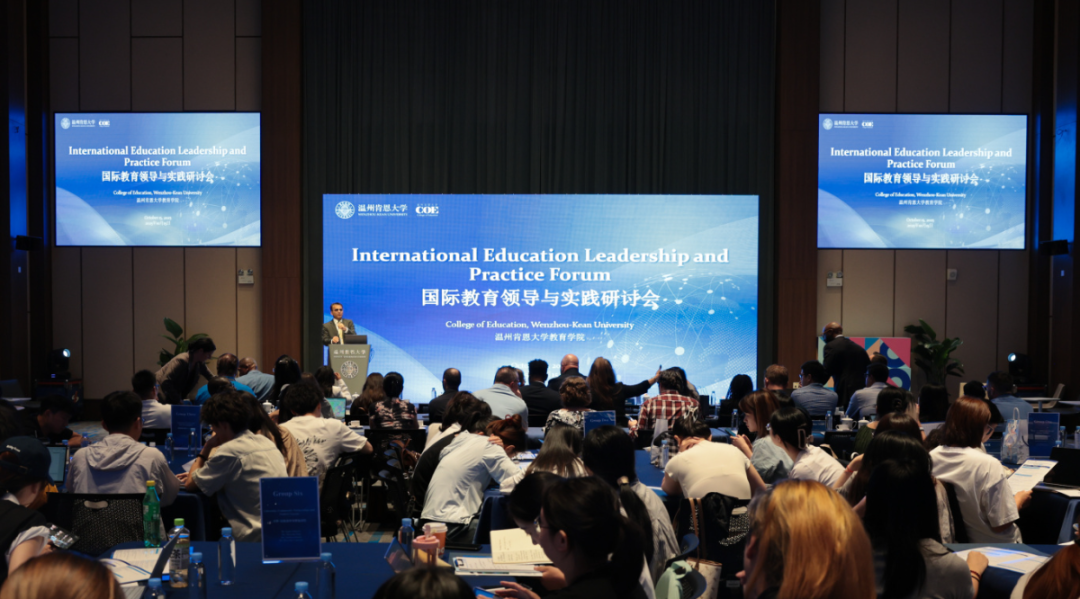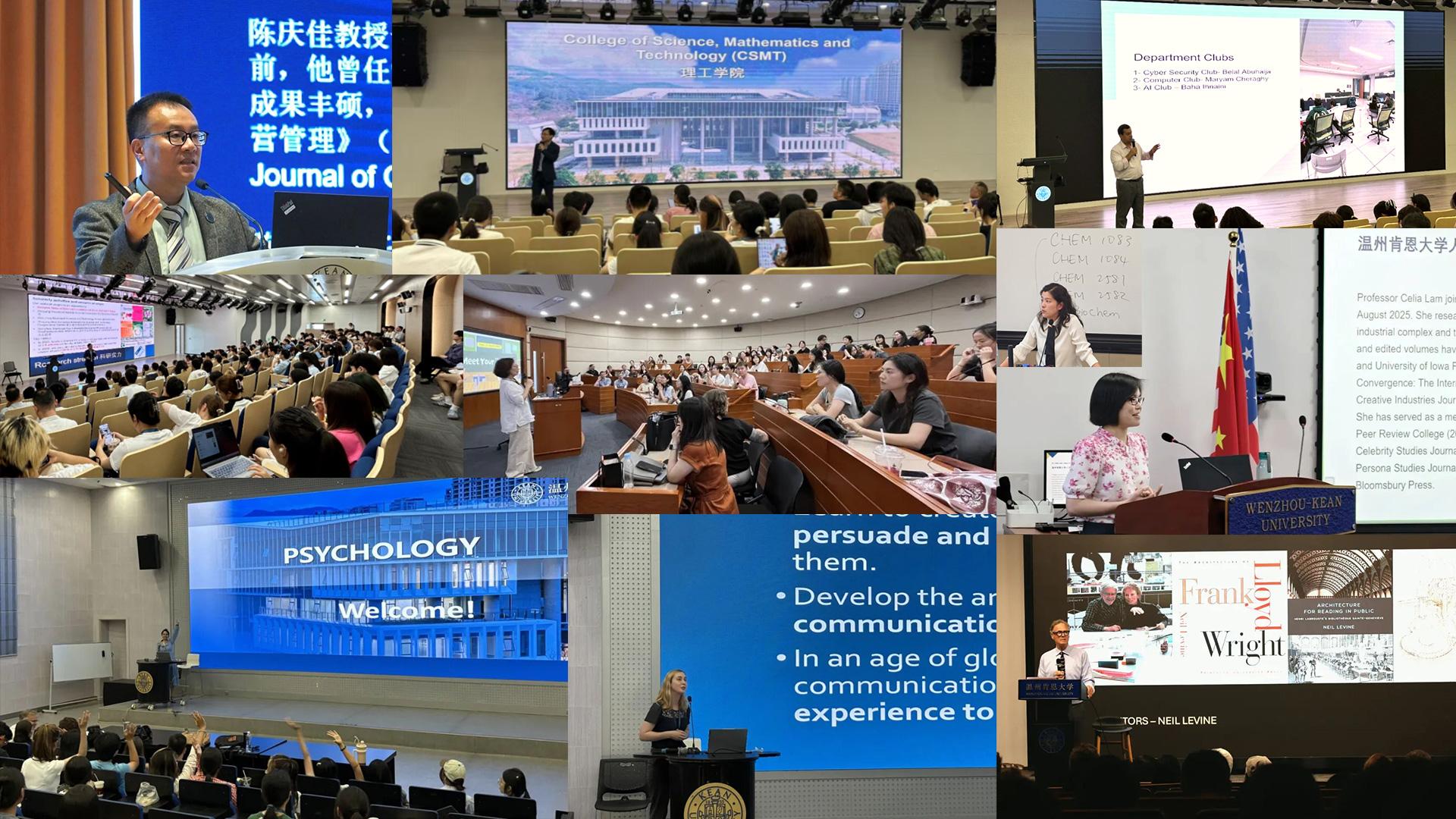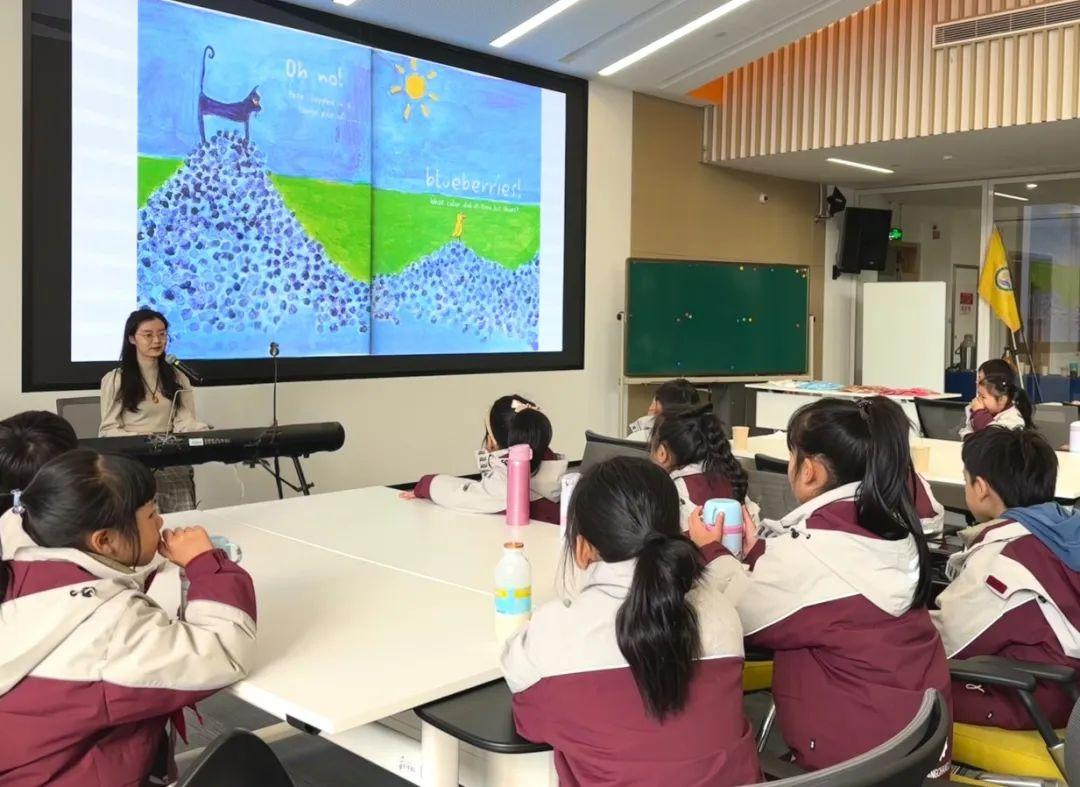
Michael Burri,博士
-
职位:副教授
-
办公室:GEH B415
-
邮箱:
简介
Dr Michael Burri is an Associate Professor in the MA TESOL program in the College of Education at Wenzhou-Kean University (WKU). Prior to moving to WKU, Michael taught and conducted research in Australia, Canada, and Japan. His professional interests include pronunciation instruction, second language (L2) teacher education and learning, L2 teacher cognition, Mind Brain Education Science, and the ethical use of GenAI.
Michael’s current research explores how L2 teachers learn to teach English as an additional language and what this means for the development of their cognitions (thoughts, beliefs, attitudes, and knowledge) and their classroom practices, especially in regard to pronunciation and neuroscience. Other current research projects focus on Spanish teachers’ cognitions about their own accents, the relationship between cognitive load and English vocabulary learning of Vietnamese children, and Japanese EAP students’ perceptions of the ethical use of GenAI tools
He has published in many leading journals, and his longitudinal research on learning to teach English pronunciation was awarded the MAK Halliday Prize for Outstanding Research in Applied Linguistics (2019) and the TESOL Award for an Outstanding Paper on NNEST Issues (2015).
ORCID: https://orcid.org/0000-0003-0115-5349
Google Scholar: https://scholar.google.com/citations?user=5zlNA0EAAAAJ&hl=en
教育背景
PhD in Education (TESOL). University of Wollongong, Australia, 2016
MA in TESOL. Trinity Western University, Canada, 2008
教学经历
2020-2025: Senior Lecturer in TESOL, University of Wollongong, Australia.
2014-2019: Lecturer in TESOL, University of Wollongong, Australia.
2008-2013: EAP Instructor & Program Coordinator, British Columbia Institute of Technology, Canada.
2002-2003: English & Physical Education Instructor, YMCA International High School, Japan.
2000-2002: English & German Instructor, Howdy Language School, Japan.
研究领域
Second language teacher education & professional learning
Pronunciation teaching and learning
Language teacher cognition
Longitudinal research
Mind, Brain, and Education Science
Ethical use of GenAI
发表论文及会议展示
发表论文(部分):
Baker, A., & Burri, M. (2025). Learning to teach L2 pronunciation via online and blended on-campus coursework. TEFLIN Journal, 36(1), 1-20. https://doi.org/10.15639/teflinjournal.v36i1/1-20
Burri, M., Wotring, A., Tan, Y. S. M., Nielsen, W., & Amiel, J. (2025). “You’re not too old for learning”: Exploring EFL teachers’ developing practices and cognitions about neuroscience. International Journal of TESOL Studies, 250622. 1-24. https://doi.org/10.58304/ijts.250622
Neff, J., Arciaga, K., & Burri, M. (2024). EFL students’ and teachers’ perceptions of the ethical uses of AI tools. Technology in Language Teaching & Learning, 6(3), 1-19. https://doi.org/10.29140/tltl.v6n3.1714
Nguyen, L., & Burri, M. (2024). Pronunciation pedagogy in English as a foreign language teacher programs in Vietnam. International Review of Applied Linguistics in Language Teaching, 62(2), 675-691. https://doi.org/10.1515/iral-2022-0126
Burri, M. (2023). Making the case for brain-friendly pronunciation instruction. RELC Journal, 54(3), 864-872. https://doi.org/10.1177/00336882211035519
Burri, M., Nielsen, W., Wotring, A., Amiel, J. J., & Tan, Y. S. M. (2023). Teacher professional learning: Using an online learning study model to facilitate EFL teachers’ self-reported practices and cognitions about brain-based principles. The Journal of Asia TEFL, 20(1), 166-176. http://dx.doi.org/10.18823/asiatefl.2023.20.1.13.166
Burri, M. (2023). Comparing L2 teachers’ practices with learners’ perceptions of English pronunciation teaching. Profile: Issues in Teachers’ Professional Development, 25(1), 129-145. https://doi.org/10.15446/profile.v25n1.101156
Burri, M., Mantei, J, & Kervin, L. (2022). “This side is the real world and the other one is like Minecraft”: Using an almost wordless picture book to explore Japanese primary school students’ cultural awareness. Language Teaching for Young Learners, 4(2), 192-214. https://doi.org/10.1075/ltyl.21013.bur
Burri, M. (2022). From ESL student to teacher educator: Reflections on transnational and transcultural professional identity development. In G. Barkhuizen (Ed.), Language teachers studying abroad: Identities, emotions and disruptions (245-255). Multilingual Matters.
Brinton, D., Burri, M., & Baker, A. (2022). Beyond controlled, guided, and free practice: Teaching pronunciation effectively via a coaching model. In J. Levis, T. Derwing, & S. Sonsaat-Hegelheimer (Eds.), Second language pronunciation: Bridging the gap between research and teaching (151-173). John Wiley & Sons, Inc.
Burri, M. (2021). “Teaching pronunciation is always on my mind”: A 5-year longitudinal study on a Japanese English teacher’s developing practices and cognition about pronunciation. JALT Journal, 43(2), 143-166. https://doi.org/10.37546/JALTJJ43.2-1
Burri, M., & Baker, A. (2021). “I feel…slightly out of touch”: A longitudinal study of teachers learning to teach English pronunciation over a six-year period. Applied Linguistics, 42(4), 791-809. https://doi.org/10.1093/applin/amab009
Burri, M. (2020). Conducting qualitative longitudinal research on learning to teach English pronunciation: Challenges, pitfalls...coffee, and bubbles! The Qualitative Report, 25(8), 3163-3172. https://doi.org/10.46743/2160-3715/2020.4365.
Burri, M., & Baker, A. (2020). “A big influence on my teaching career and my life”: A longitudinal study of L2 pronunciation teacher development. TESL-EJ, 23(4).
Burri, M., & Baker, A. (2019). “I never imagined” pronunciation as “such an interesting thing”: Student teacher perception of innovative practices. International Journal of Applied Linguistics, 29(1), 95-108. https://doi.org/10.1111/ijal.12247
Burri, M., Baker, A., & Chen, H. (2018). Establishing a framework for learning to teach English pronunciation in an Australian TESOL program. Australian Review of Applied Linguistics, 41(3), 307-327. https://doi.org/10.1075/aral.18020.bur
Burri, M. (2018). Empowering non-native-English-speaking teachers in primary schools contexts: An ethnographic case study. TESOL Journal, 9(1), 185-202. https://doi.org/10.1002/tesj.316
Pang, W., & Burri, M. (2018). Teaching dialogic speaking strategies in a Canadian EAP program. In A. Burns & J. Siegel (Eds.), International perspectives on teaching the four skills in ELT: Listening, speaking, reading, writing (pp.111-124). Palgrave Macmillan.
Burri, M. (2017). Making sense of theory: A doctoral student’s narrative of conceptualizing a theoretical framework. BC TEAL Journal, 2(1), 25-35. https://doi.org/10.14288/bctj.v2i1.271
Burri, M., Chen, H., & Baker, A. (2017). Joint emergence of teacher cognition and identity through learning to teach L2 pronunciation. The Modern Language Journal, 101(1), 128-142. https://doi.org/10.1111/modl.12388
Burri, M., Baker, A., & Chen, H. (2017). “I feel like having a nervous breakdown”: Pre-service and in-service teachers' developing beliefs and knowledge about pronunciation instruction. Journal of Second Language Pronunciation, 3(1), 109-135. https://doi.org/10.1075/jslp.3.1.05bur
Baker, A. & Burri, M. (2016). Feedback on second language pronunciation: A case study of EAP teachers’ beliefs and practices. Australian Journal of Teacher Education, 41(6), 1-19. https://doi.org/10.14221/ajte.2016v41n6.1.
Burri, M., Baker, A., & Acton, W. (2016). Anchoring academic vocabulary with a “hard hitting” haptic pronunciation teaching technique. In T. Jones (Ed.), Pronunciation in the classroom: The overlooked essential (pp. 17-26). TESOL Press.
Burri, M. (2015). “My perspective changed dramatically:” A case for preparing L2 instructors to teach pronunciation. English Australia Journal, 31(1), 19-37.
Burri, M. (2015). Student teachers’ cognition about L2 pronunciation instruction: A case study. Australian Journal of Teacher Education, 40(10), 66-87. https://doi.org/10.14221/ajte.2015v40n10.5.
Acton, W., Baker, A., Burri, M., & Teaman, B. (2013). Preliminaries to haptic-integrated pronunciation instruction. In J. Levis & K. LeVelle (Eds.), Proceedings of the 4th Pronunciation in Second Language Learning and Teaching Conference (pp. 234-244). Ames, IA: Iowa State University. Available at https://ro.uow.edu.au/sspapers/415/
会议展示:
Burri, M. (2024, November). The lived experiences of a journal editor: An autoethnographic case study. Paper presented at the 2024 ALAA/ALANZ/ALTAANZ Conference, Launceston, TAS, Australia.
Burri, M. (2024, June). Navigating challenges outside and inside the L2 classroom: Empirical evidence from studies exploring teachers’ practices and cognitions. Talk given at Miyagi University of Education, Sendai, Japan.
Burri, M. (2024, June). Language lost and retrieved: Exploring language acquisition through a transdisciplinary lens. Talk given at Research Center for Language, Brain, and Cognition, Tohoku University, Sendai, Japan.
Burri, M. (2024, May). The neuroscience of learning. Talk given in the English Program of Utsunomiya University, Tochigi, Japan.
Neff, J. Arciaga, K., & Burri, M. (2024, May). Teacher and student perceptions of the ethical use of A.I. tools. Paper presented at the 2024 PanSIG Conference, Fukui, Japan.
Burri, M. (2024, May). Pronunciation Teaching, Meet Neuroscience! Paper presented at the 2024 PanSIG Conference, Fukui, Japan.
Burri, M. (2024, April). Let’s talk about it! Pronunciation teaching unplugged. Pre-Conference Event presented at the 57th IATEFL Conference, Brighton, UK.
Burri, M. (2024, April). L2 teachers’ professional trajectories with pronunciation teaching: A 10-year study. Paper presented at the 57th IATEFL Conference, Brighton, UK.
Burri, M., & Baker, A. (2023, November). Pronunciation teaching unplugged. Workshop presented at the 2023 ALAA Conference, Wollongong, Australia.
Burri, M. (2023, September). English language teachers engaging with neuroscience: So what? Plenary given (via Zoom) at the 11th International English Language Teaching Conference, George Town, Penang, Malaysia.
Burri, M. (2023, July). L2 teaching and learning: What does neuroscience have to do with this?. Plenary given at the 4th Mekong TESOL Conference, Can Tho City, Vietnam.
Burri, M. (2023, April). Learning to teach pronunciation: Insights from an 8-year study. Pre-Conference Event presented (online) at the 56th IATEFL Conference, Harrogate, UK.
Burri, M., & Wotring A. (2023, March). Using a learning study model to facilitate the development of L2 instructors’ practices and cognitions about the brain. Paper presented at the 2023 Annual Conference of the American Association for Applied Linguistics, Portland, OR, USA.
Ogawa, Y., Burri, M., & Baker, A. (2023, March). Connecting Japanese English teachers’ cognitions and self-reported practices with students’ perceptions of willingness to communicate. Paper presented at the 2023 Annual Conference of the American Association for Applied Linguistics, Portland, OR, USA.
Burri. M., & Wotring, A. (2023, March). Developing EFL instructors’ practices and cognitions about the brain. Paper presented at the 56th Annual TESOL Convention, Portland, OR, USA.
Burri, M., & Kelly, C. (2023, March). Reconceptualising the L2 speaking classroom: An embodied story perspective. Paper presented at the 56th Annual TESOL Convention, Portland, OR, USA.
Ogawa, Y., Burri, M., & Baker A. (2023, March). Willingness to communicate: Teachers’ self-reported practices, cognitions, and learners’ perceptions. Paper presented at the 56th Annual TESOL Convention, Portland, OR, USA.
Baker, A., Burri. M., & Mister, B. (2022, November). Pronunciation pedagogy & COVID-19: Extension of a longitudinal study of teacher learning. Paper presented at the 2022 ALANZ-ALAA-ALTAANZ Conference, Wellington, New Zealand.
Burri, M. (2021, November). L2 teacher learning: A longitudinal and pronunciation-oriented perspective. Paper presented at UCL Centre for Applied Linguistics, University College London, London, UK.
Burri, M. (2021, June). Comparing L2 learners’ perceptions with L2 teachers’ practices and cognitions about pronunciation. Featured Speaker presentation given at the 2021 Virtual Pronunciation in Second Language Learning and Teaching Conference.
Burri, M. (2020, June). Zooming in on the nexus between neuroscience and pronunciation teaching. Keynote given at the Virtual 2020 TESOL/JALT International Mind, Brain, and Language Education Symposium.
研究基金
2021: RevITAlising Research Grant, University of Wollongong. Using Online Learning Study to Explore English Language Instructors’ Application of Neuroscientific Principles in the Classroom. AU$11,320.50.
2018: Faculty ECR Start-up Grant. University of Wollongong. Exploring the Development of Pronunciation Teaching Competence: The Third Phase of a Longitudinal Study. AU$6,356.80
获奖情况
2019: MAK Halliday Prize for Outstanding Research in Applied Linguistics, Applied Linguistics Association of Australia.
2017: School of Education Outstanding Thesis Award, University of Wollongong.
2015: TESOL Award for an Outstanding Paper on NNEST Issues, TESOL International Association.
2015: Best Presentation, University English Centres Australia PD Fest Sydney.
2008: Outstanding MATESOL Student Award, Trinity Western University.
专业协会
The Association for Language Testing and Assessment of Australia and New Zealand (ALTAANZ)
Applied Linguistics Association of Australia (ALAA)
TESOL International Association
专业领域中的服务与贡献
2024-present: Review Panel Member, Journal of Education for Multilingualism.
2022-2025: Editorial Advisory Board Member, TESOL Quarterly.
2021-2025: Executive Editor, English Australia Journal.
2019-2021: Board Member, English Language Testing Society.
2021: Conference Co-chair, Virtual Testing Conference “Testing Challenges and Choices”, English Language Testing Society
2018: Conference Co-chair, 3rd Pronunciation Symposium, University of Wollongong, Australia.
2012-2013: Chair Speech, Pronunciation, Listening Interest Section (SPLIS), TESOL International Association.
2008-2010: Chair of Professional Development Committee, BC TEAL, Canada.
For additional information about Michael’s professional service and governance, please see here: https://michaelburri.weebly.com/service.html
教授课程
TESL 5420 Models for Teaching and Assessing English Language Learners: Standards-based Approach
TESL 5435 Language Acquisition and Second Language Learning




